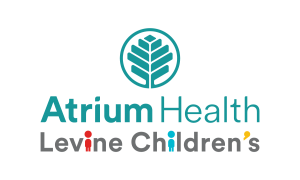CSP Team Note: With school and fall sports in full swing, we caught up with Dr. Chpryelle Carr, MD FAAP, at Atrium Health Levine Children’s Waxhaw Pediatrics to talk to us all about concussions. We appreciate her time and expertise on this subject matter!
What is a concussion?
A concussion is any brain injury that disrupts normal brain function. This can be permanent, but most times it is temporary. It is also considered a mild traumatic brain injury. A concussion typically occurs when there is a direct force to the head. This can occur by a direct blow to the head, neck, or anywhere else on the body.
What are the best ways to prevent concussions?
One common and easy way to prevent a concussion is to wear a helmet with any riding activities (bike, tricycle or ATVs for example) or contact sports. It is imperative that children/teens have properly fitted helmets to ensure their safety. With contact sports, making sure they are playing safely (for example appropriate contact or tackle during a football play) can also help prevent concussions.
Are there specific ages where concussions are more likely to happen?
Since concussions often occur during contact sports, children playing these sports are more at risk to have a concussion. For boys, this includes lacrosse and American football. For girls, this includes lacrosse and soccer.
How can I tell if my child is concussed? What are the symptoms and signs?
Symptoms can vary based on age, but it is important for any child to be assessed as soon as a suspected or witnessed head trauma or injury occurs. Signs and symptoms can include nausea/vomiting, disorientation, vision changes, headache, poor focus, disordered speech, gait imbalance, emotional changes, or even loss of consciousness. Some symptoms may not be immediately apparent and may not appear for several hours or days.
What should I do if I think my child has a concussion?
The most important thing is to make sure your child is assessed by a medical professional. Often this may start on the sideline if your child is participating in a sport. Anytime there is a concern for a possible concussion one should seek an evaluation by an emergency department or primary care provider.
When should I take my child to the emergency room rather than wait to see a pediatrician?
Anytime there is a concern for a serious injury other than a concussion and possible need for imaging (CT for example), one should seek an evaluation in an emergency department. In addition, if your child has been unconscious for more than one minute, has a severe headache, any seizure activity, or any worsening activity (for example difficulty walking, increased fatigue or weakness on one side of the body), one should seek an evaluation immediately. Anytime there is a concern, it is always best to have your child evaluated immediately following a concussion in order to receive the best care.
What should I expect at the pediatrician if I think my child is concussed? What kinds of questions might the doctor ask and/or what kinds of tests might be run?
Luckily, most concussions are not associated with intracranial (or brain bleed) so imaging such as CT is often not needed. Your pediatrician will complete a thorough history and physical examination, including a neurological exam. They will also test your child’s memory and attentiveness. As mentioned above most children do not need any imaging and very few require lab work. A concussion is a clinical diagnosis and can be diagnosed by your pediatrician or primary care provider after a thorough evaluation.
Can my child take medicine if he or she is concussed?
Headache is a common symptom with concussions. Children can take Tylenol or acetaminophen for any headache. It is important to limit any pain relief medication to the first couple of days of symptoms. We never want to mask any worsening symptoms and want to make sure your child has fully recovered before they resume normal activities.
Is there a point where it is recommended a child “give up” a sport after a concussion or concussions?
For some children, it may take up to 4 weeks to recover from a concussion. It is important not to rush a child back to sports or school. We always have to consider the number of concussions a child has had before we recommend a child to retire from contact sports. We will often consider formal testing including neuroeducational testing when deciding if a child should retire from contact sports. In general, if your child has had increased recovery times following concussions, prolonged persistent symptoms, or multiple concussions over the course of an athletic career, we often recommend retiring from the sport.
What is “mental rest?”
“Mental rest” or “brain rest” is one of the first steps to recover from a concussion. This includes avoiding all screens (for example cell phones, computers and/or tablets) and possibly avoiding school. After an evaluation from your pediatrician, children will also start a graduated “return to learn” or “return to play” under the strict advice from their primary care provider. Some children may need school or academic adjustments including limiting school day or increased rest time. This can be facilitated by your child’s school and pediatrician. It is important for your child to return to their normal school day and participation in sports once they are completely symptom-free.
What are some resources parents and kids can use to better educate themselves on concussion prevention and treatment?
You pediatrician is a great resource. I typically recommend www.healthychildren.org or www.cdc.gov as great online references for concussions to my patients.
Atrium Health Levine Children’s
Facebook
Instagram
Twitter




